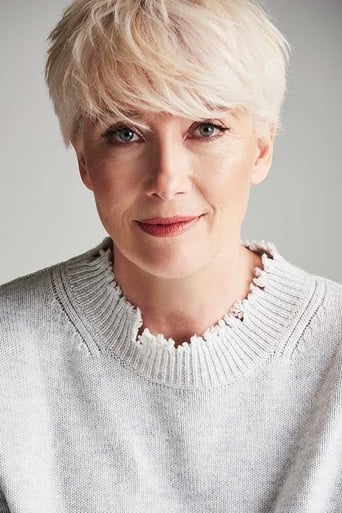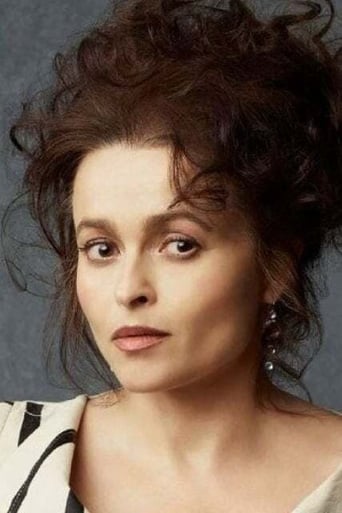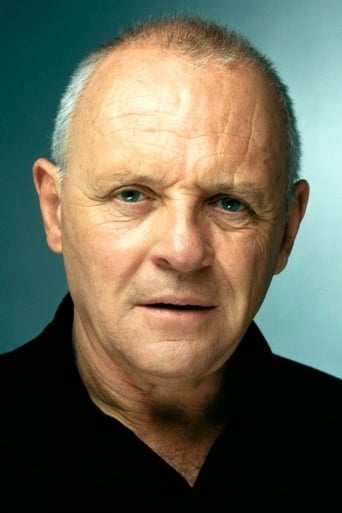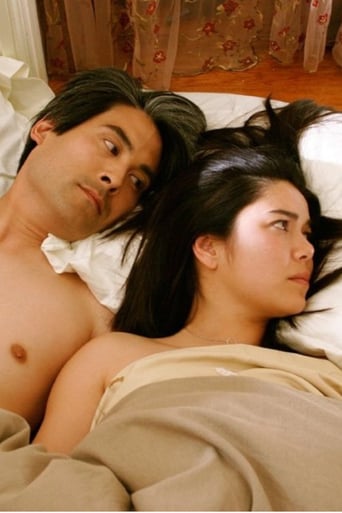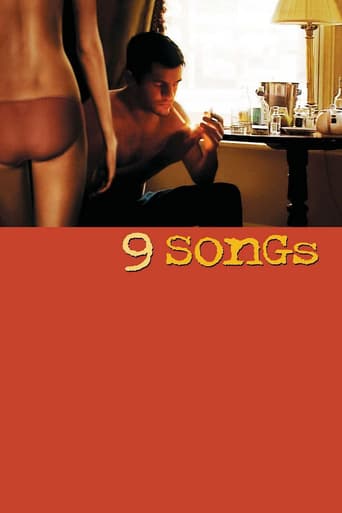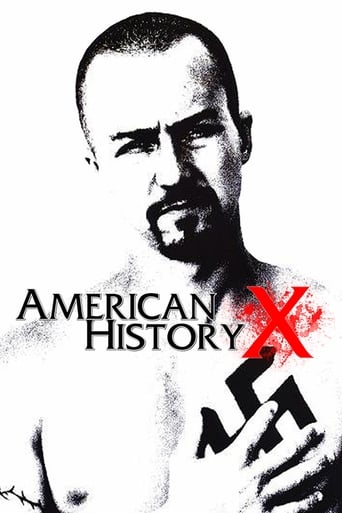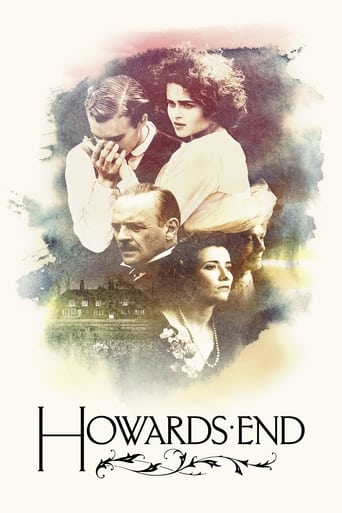
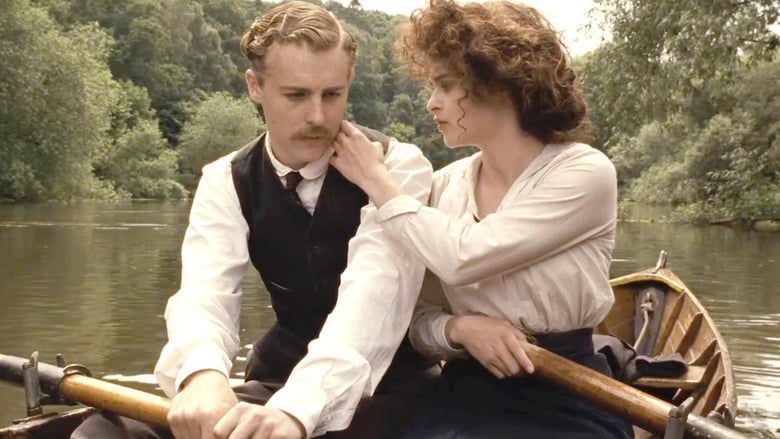
Howards End (1992)
A saga of class relations and changing times in an Edwardian England on the brink of modernity, the film centers on liberal Margaret Schlegel, who, along with her sister Helen, becomes involved with two couples: wealthy, conservative industrialist Henry Wilcox and his wife Ruth, and the downwardly mobile working-class Leonard Bast and his mistress Jackie.
Watch Trailer
Cast


Similar titles
Reviews
Although fairly engrossing this tends to lose its lustre after the first half hour which is roughly the point at which Vanessa Redgrave's character is killed off. Ms Redgrave is the best thing by far in the film and though Anthony Hopkins and Emma Thompson just about keep her from actually lapping them she leaves them for dead. Samuel West is hopelessly miscast which has the effect of making him seem inept whilst Helena Bonham-Carter wanders about ineffectually as if waiting for guidance in how to approach her role. In terms of overall appearance, period feel, etc, it's hard to fault the film and the social comment is on the mark albeit probably lost on two thirds of the audience. A lush, well-appointed soap.
What seems on the surface a simple tale of one woman's gift to another is much more complex in this story of one upper class family's involvement with two sisters, not so well off, but obviously of higher morals than some of the members of those who consider themselves everybody else's "betters". The story initially focuses on Helena Bonham Carter's Helen, a middle class lady who is involved with the upper class Joseph Bennett but unable to marry him because of his issues with his family. By chance, Carter's sister Margaret (Emma Thompson) meets the ailing matriarch of Bennett's family (a very subtle and gentle Vanessa Redgrave) who sees something special in the classy Margaret. On her death bed, Redgrave writes in pencil the desire to leave her childhood home, Howard's End, to Thompson, but at a family meeting, widower Anthony Hopkins is manipulated into preventing that by his other son (James Wilby).Encounters on occasion with Thompson brings Hopkins' sudden proposal, perhaps out of loneliness, maybe out of guilt, but within time, growing into love. Carter and Thompson's friendship with a struggling clerk (Samuel West) causes all sorts of issues, especially when West's common wife (Nicola Duffett) comes to a wedding, gets drunk, and reveals a past with Hopkins. This becomes a story then, not only of a family deception, but the ties that bind all mankind, either through obligation, unexpected human interaction or in Hopkins and Duffett's case, a brief lust that tears away at him because of the differences in their social standing. West struggles, not only to try and find a new position after his suddenly ends, but with his feelings for Carter as well and his disgust in his marriage to Duffett. The so-called polite upper class becomes murderous in a shocking twist towards the end, and this explodes into many questions of what exactly is good breeding, and who has it.Powerful performances by a magnificent cast gives this family drama a mesmerizing feel, just as dramatic as all six seasons of "Downton Abbey" whittled down to two and a half hours. There are comic bits here and there that prevent the film from becoming too staid, and the set-up of gentle matriarch Vanessa Redgrave making you care about what happens to her will require the need of Kleenex near by as her light fades and the story moves into new directions. Hopkins, playing a very conflicted man, shows all the human dimensions that makes this character very real, whether grieving over a wife he really didn't spend too much time caring about it seems in life, facing his own ordeal as an adulterer, or unable to forgive himself, both for cheating, keeping the truth away from Thompson and lastly, realizing what a bunch of greedy, selfish offspring he's raised. Prunella Scales is very funny in a small part as Carter and Thompson's no nonsense aunt. Carter and Thompson are wonderfully cast as sisters, and while Thompson has the meatier part, Carter is impressive as well. She's moved on from "A Room With a View" to showing here all the tricks she'll later pull out in her character parts in Tim Burton movies. Thompson, deservedly winning an Oscar, is an actress of such gifts, and from the moment you meet her, she's somebody you'll want as a friend as much as Redgrave did. She faces tragedy with such dignity, being independent and resourceful, yet willing to stand by her man no matter how bad things become because she sees the truths that most humans are blind to. It's the writing surrounding these characters that make "Howard's End" a joy to revisit, and while the country home may not be immense like Downton Abbey, you can see why Redgrave adored it and would only want to see it in the hands of somebody she knew would treasure it like she did.
Directed by James Ivory and based on the novel of the same name written by E.M. Forster, Howards End is a film about class struggle in early 20th Century Victorian England and a social commentary which will always seem relevant.The storyline can be described as the junction or the meeting point of the three primary classes of Victorian British society- the upper class of rich aristocrats- the Wilcoxes, the middle class consisting of philanthropic intellectuals- the Schlegels and the poor working class consisting of people who have to struggle constantly to survive- the Basts.The film for the most works due to great acting. Emma Thompson richly deserved the Oscar that she won for this performance. Sir Anthony Hopkins is also great as Henry Wilcox, the stern figure of male authority and Helena Bonham Carter is impressive too. The film has a very likable Victorian charm about it that you expect from films set in that period of British history.However I think the screenplay is a bit faulty. There are a few too many scenes which seem rushed and haphazardly stuck together. Due to the rushed screenplay, the story fails to have a resounding effect that could have happened with a better screenplay.Overall this is a very good film with a socially symbolic storyline. It portrays the hypocrisy of the rich and the helpless nature of the poor. However the film could have been a great film in my eyes with a better screenplay.
E. M. Forster began his novel "Howards End" with the epigram "Only connect ", words which have been interpreted as a plea for a greater degree of imaginative sympathy between people of different social classes and (just as importantly) between people with different attitudes to life. The book tells the story of three Edwardian families, the Wilcoxes, the Schlegels and the Basts. Although Leonard Bast and his wife Jacky are from a working-class background, there is not much difference in socio- economic terms between the other two families, both part of the well-to- do bourgeoisie. There is, however, a big difference in their outlooks. The cultured, artistic and intellectual Schlegels, of German extraction, represent "old money". (Forster borrowed their surname from the Schlegel brothers, German writers and philosophers). The Wilcoxes, by contrast, represent "new money". The father of the family, Henry, is a self-made businessman, and he and his three children are far more interested in business and making money than they are in culture or the arts. The Howards End of the title is the Wilcoxes' family home, a large farmhouse belonging to Henry's wife Ruth, who is more in sympathy with the artistic outlook of the Schegels than the rest of her family. She becomes a close friend of Margaret, the oldest of the three Schlegel siblings. In the meantime Margaret's younger sister, Helen, has befriended Leonard Bast, a clerk in an insurance company, who shares her reverence for high culture. (They meet at a lecture on Beethoven). The story then follows the complications arising from these two friendships. This film was the last entry in the cinema's great Forster cycle of the eighties and early nineties, a period which saw filmed versions of five of his six novels. It was the third adaptation of a Forster novel by Merchant Ivory Productions, following "A Room with a View" and "Maurice". In my view it is, together with "A Room with a View", the best film of the Forster cycle, for a number of reasons. The first is that the Merchant-Ivory style of film-making, with its meticulous concern for period detail and its gentle, unhurried method of story-telling, seems admirably suited to the works of Forster. David Lean's grand epic manner was never an ideal match for "A Passage to India", a novel which, although it deals with political questions, concentrates on intimate personal relationships rather than the great historical events which formed the subject-matter of Lean's other late works. Charles Sturridge tried to imitate the Merchant-Ivory method in "Where Angels Fear to Tread", but could never quite bring it off. The second is the remarkable number of great performances which James Ivory was able to elicit from his cast. The film only won one acting Oscar, Emma Thompson for "Best Actress", but there were a number of other acting contributions of equal quality. Anthony Hopkins was perhaps not going to win a second Oscar so soon after "The Silence of the Lambs" the previous year, but to my mind he deserved "Best Actor" far more than Al Pacino in "Scent of a Woman". (Whether he deserved it more than Clint Eastwood in "Unforgiven" is perhaps another matter). Hopkins succeeds well in his difficult task of bringing out the two sides of Henry's personality. On the one hand he is arrogant, snobbish and autocratic, but on the other Hopkins needs to imply a hidden, more likable side to him if the audience is to accept him as Margaret's husband. (The two marry after Ruth's death). Helena Bonham Carter was well-known around this period for her acting in period dramas; she had appeared in two earlier Forster adaptations, "A Room with a View", and "Where Angels Fear to Tread". There is a nice contrast between her Helen- passionate, impetuous and rash- and Thompson's calmer, more measured Margaret. Helen has a strong social conscience which Margaret seems to lack, and at first comes across as the more sympathetic of the two sisters, yet Helen's well-intentioned interventions in other people's lives can have disastrous unintended consequences. As for Thompson, she gives an object lesson in the art of portraying a quiet, reserved character without making her dull or uninteresting. Thompson and Hopkins were to act together in another Merchant-Ivory drama the following year, "The Remains of the Day". Other excellent performances come from Vanessa Redgrave as Ruth Wilcox, James Wilby as Henry and Ruth's pompous, overbearing older son Charles and Samuel West as Leonard Bast. Bast is a tragic figure- he is clearly highly knowledgeable and intelligent, but because of his humble social origins is unable to put his intelligence to good use and is patronised and mistreated by those who consider themselves his social betters. He is also held back by his wife who shares neither his intelligence nor his aspirations. The third reason why the film works so well is the way in which it brings out the themes of the excellent novel on which it is based and makes them relevant to the 1990s (without ever labouring the point). The story might be set in the 1910s, yet its themes of the contrasting values of business and culture, of unemployment, of wealth and poverty, are still relevant even today. Henry Wilcox might be a figure from the Edwardian era, yet in 1992 his values would have seemed very familiar to those who had just lived through the boom years of the "greed is good" eighties. Leonard Bast recalls those who lost their jobs when that boom turned to bust. Even Helen, the woolly but well-meaning member of the liberal Guardian- reading classes, is a familiar figure to modern viewers. British heritage cinema, and the work of Merchant-Ivory in particular, is sometimes criticised as a mere exercise in sentimental nostalgia, with no relevance to modern times. "Howard's End" serves as the best possible refutation of that sort of criticism. 9/10


